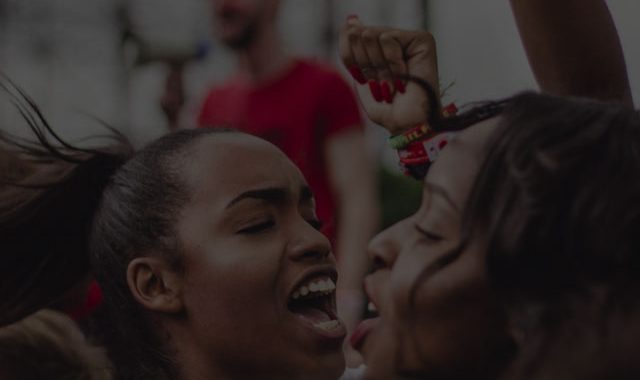UNSAFE ABORTIONS DURING COVID-19 LOCKDOWN
17th June 2020
Written by Tshiamo Wilson, Founder of SheSpoke Organisation and Saidy Brown, SheDecides 25x25 Young Leader
Safe and legal abortion services are free in South Africa. This ensures that everyone has the right to decide and can access abortion services if they want to. However, because of various reasons such as age, distance to clinics in rural areas, and simply a fear of stigma and judgment, the access to these legal services is something of a privilege. Many young people opt for illegal abortions despite the dangerous health implications these could cause.
Tshiamo Wilson, founder of She Spoke Organization, was deprived that privilege when she was told she needed a parent’s consent at age 17. So, she opted to having an illegal abortion - a service she had found out about on the internet with her friend when her then boyfriend had denied impregnating her.
“He told me he was scared of disappointing his mother, but I was also scared of disappointing my mother, yet I had to go through the whole process alone. I do motivational talks based on gender-based violence, rape and abortion, I share my journey mainly on these issues because I have been through them. I offer support to people on social media, and I have women I work with, and other organizations to make sure I am accessible to as many people as possible.”

Tshiamo only had her friends as support when she went to buy abortion pills, one friend accompanied her to go meet this man who sold her these abortion pills. “We feared for our lives as we jumped into that man’s car because of how unsafe South Africa is for women”, Tshiamo remembers. “We drove to a parking lot in Pretoria CBD, and he left us in the car, I kept on thinking ‘What the hell? This is illegal.”
“That whole experience made me so bitter because the person I was meant to have gone through that whole experience with was out with his friends, drinking alcohol, cheating on me and not even answering my calls.”
“I didn’t take the pills immediately as I was given instructions on how and when to take them. I had to take one pill and insert one into my vagina. I was told not to sit still, so I moved around, and jumped up and down for six hours, it was the worst experience of my life, I hated every second of it. And because it was Christmas eve, as the contractions started, I had to just act like I was okay, when I was in pain. Around midnight my family had just gone to bed, so I went to the bathroom and pushed until the foetus came out, I was numb, took my phone and texted my friends, I washed the blood off the towels and cleaned up the bathroom, and went to bed. I have my days when I'm not okay, and I also think back to that day every year on Christmas eve, I am still healing, it is still a journey and I am constantly working on it.
Now, during this pandemic, I have received more messages than ever from women who want to terminate their pregnancies illegally. I worry that this could mean that there has been a rise in unsafe abortions. I do tell them about the risks of illegal abortions, but my work is to educate and support, not judge.
I wish the issue of parental consent was not so strict in clinics. The stigma forces women into choosing unsafe abortions. Unsafe abortions prolong the healing process, and there is no provision of even the most basic mental health support and counselling. Aborting illegally also impacted my health because I didn’t get cleaned.
Because of stigma and without appropriate help I didn’t get the necessary post-abortion care. To this day, I still have to deal with the aftermath of that illegal abortion, emotionally and physically. I always have illnesses associated with my uterus and I do believe things could have turned out better had I terminated at a hospital, properly. I also hate that our government does so little with regards to raising awareness on issues of abortion. People hate it when I talk about abortion. I think many people just don’t know what abortion is, and they don’t want to know. I support every woman’s right to decide. If the South African government does too, then it must do more to help people understand what abortion is and overcome the stigma.”

